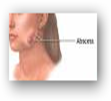This case is very interesting and no doubt the science of the drug will enter into the picture. It states that the drug basically keeps old bones in tact but can potentially stop or hinder the growth of new bones tissue from what I read here, so I guess if you didn’t need any new bone tissue it was ok, but for those who needed to grow new tissue in the jaw area, it was potentially a problem.
but for those who needed to grow new tissue in the jaw area, it was potentially a problem.
From having had some oral surgery there is artificial bone that can be implanted if the initial structure is not too far gone though, but it doesn’t sound like this appears to be the case here. BD
Drug executives, product liability lawyers and Wall Street analysts are closely watching a jury trial in New York over medical problems associated with Fosamax, a drug from Merck that has been taken by millions of women to offset the bone loss associated with menopause.
It is the first of about 900 state and federal cases pending against Merck in which plaintiffs claim that taking Fosamax caused them to develop a rare problem called osteonecrosis of the jaw. Dental surgery is one of the triggers for the condition that can break down jawbone tissue, causing the gums to fall away and expose bone that looks moth-eaten, oral surgeons said.
The trial began Aug. 12. Mr. O’Brien has presented internal Merck e-mail messages, company documents and case reports from medical journals to bolster his case that Merck knew about jaw problems associated with Fosamax and did not study the problem or warn doctors about it in a timely fashion.

Jawbone death has long been a known side effect of radiation in patients being treated for oral cancer. But, about six years ago, a few oral surgeons began reporting jawbone death in patients who had not received radiation for oral cancer.
It is the drug’s potential for decreasing the formation of new bone tissue that may contribute to jawbone death, said Dr. Ruggiero, who was one of the first doctors to study and publish articles on the problem. Because of the trauma caused by chewing and teeth grinding, jawbone cells turnover more quickly than many other bones in the body, he said. Recognizing the high cell turnover, bisphosphonates may accumulate in the jawbone, and try to compensate by oversuppressing cell turnover, he said.
According to this theory, bisphosphonates might lead to jawbone death in patients who have dental surgery, like tooth extraction, from which the jaw needs to heal itself even more intensely, he said.
Users of Merck’s Fosamax Say it Caused Jaw Injury - NYTimes.com



0 comments :
Post a Comment